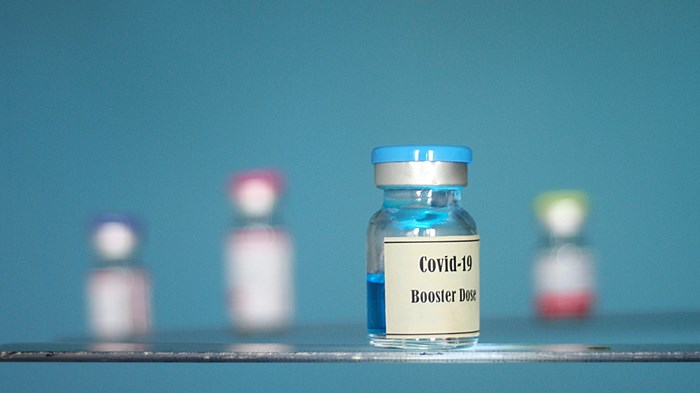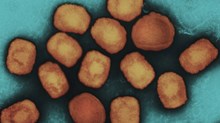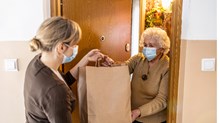Evangelicals Picked the Wrong COVID Debate. Here’s the One We Should Be Having.

Twenty months in, the bickering continues: to mask or not to mask, to mandate or not to mandate.
When not used for political or tribal posturing, these arguments at least touch on important issues of freedom and care for neighbors. But they have also taken our eye off the football--a metaphor conveniently provided by an NFL quarterback’s self-indulgent approach to the vaccine.
With the COVID booster finally available to everyone who had their final vaccination more than six months ago, this is the more serious debate I wish we were having:
Should I be going to get my third Covid shot (booster), or should I refuse it in protest and solidarity with people in less wealthy nations, in an attempt to pressure the U.S. and pharmaceuticals to better mobilize to provide vaccines for the rest of the world?
One of us got our booster earlier this week; the other is scheduled for Monday. I was concerned about inequity, but the booster also seems like the best way to steward protection of neighbors, family, and self. Then I read “Why I’m Embarrassed to receive a COVID Booster” by the president emeritus and senior fellow of the Center for Global Development, Nancy Birdsall, who articulated the case well. She says that “an ethical vaccine distribution would start with a far more equitable sharing of vaccines between rich and less-rich nations.”
As followers of Christ, this case of loving our neighbors with less resources should be compelling enough. Self-interest should also drive us to this kind of approach to reduce the risk of variants.
She breaks down what this would look like practically:
A global agenda would mean pressing for intellectual property waivers, to push US vaccine producers to share their property rights and know-how with manufacturers in countries such as India, Brazil, and South Africa, and encouraging those countries to issue compulsory licenses, as allowed by the WTO, for use of those rights. (Pfizer and BioNTech have an arrangement to coproduce vaccines with Brazil, but will not share their RNA technology.) It would mean not hoarding at home the capacity to manufacture vaccines as well as the vaccines themselves. Manufacture of the new RNA vaccines can be copied; waivers and licensing, by reducing legal and regulatory uncertainty in middle-income countries, would speed up development of local capacity to do so.
Birdsall acknowledges the reason for boosters at home. They’re obvious by now: we protect vulnerable people in our communities, health care workers, first responders, teachers. We benefit people through a stronger economy. And so on.
But those benefits pale compared to the benefits in lives saved and livelihoods restored across all countries of making two doses available, by sharing the intellectual property rights, fixing supply chain problems, and providing technical support to local public health officials in low- and middle-income countries in building the infrastructure of rapid implementation of vaccine programs.
At the end of the article, she says she’ll get the booster but “can’t help feeling selfish and unduly privileged.” Same with me, on all counts.
As people who work with students and organizations serving vulnerable people around the world, we’ll add one more regret: that this isn’t the Covid debate being pressed right now by Evangelicals. Because that would mean we’ve moved past whether it’s effective (it is) and whether getting vaccinated is a wise, loving, and faithful step (it is) and arrived at advocating for others who are being unjustly left out of the vaccine line.
Kent Annan and Jamie Aten co-direct the Humanitarian Disaster Institute at Wheaton College, the first faith-based academic research center in the nation. Learn more and support the work of disaster preparedness today.
The Better Samaritan is a part of CT's
Blog Forum. Support the work of CT.
Subscribe and get one year free.
The views of the blogger do not necessarily reflect those of Christianity Today.






















